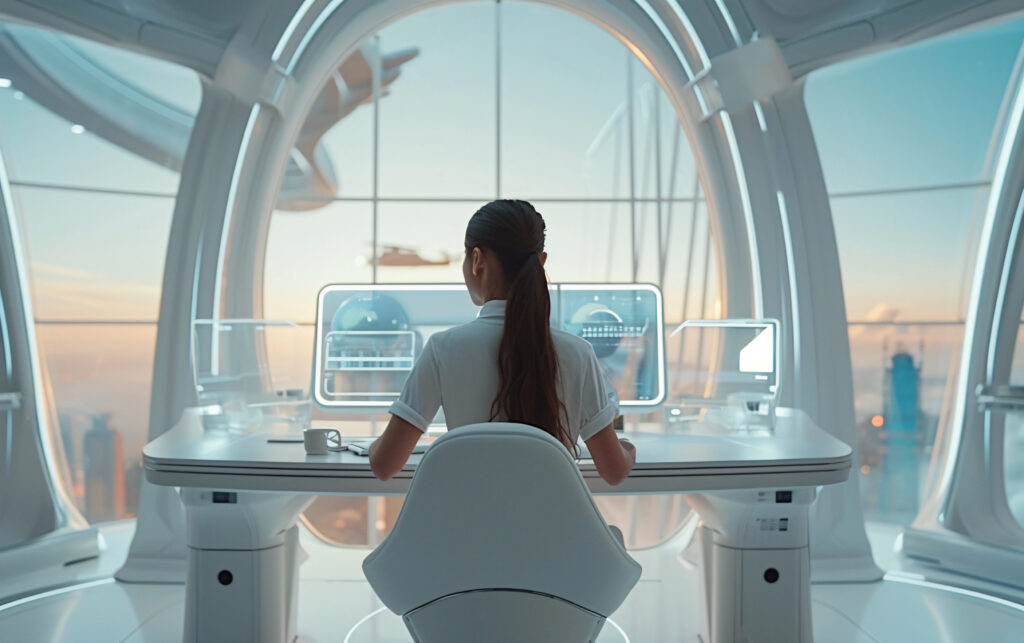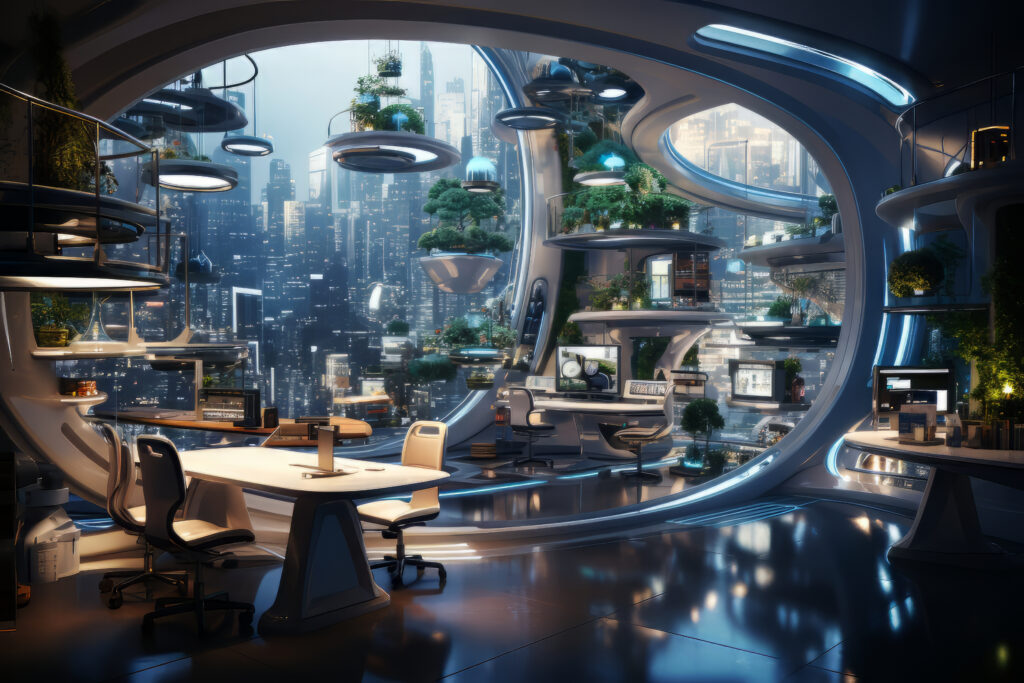Artificial intelligence (AI) is a Future of Work, automating tasks, and reshaping the workforce. The rapid advancements in machine learning, robotics, and automation have led to concerns about job security. Will AI replace human jobs entirely, or will it enhance productivity and create new career opportunities?
How AI is Transforming the Workplace
AI is already making a significant impact across various industries. From customer service chatbots to self-driving cars, businesses are leveraging AI to improve efficiency. Some key ways AI is changing the workforce include:
Automation of Repetitive Tasks:
Many routine and manual tasks, such as data entry, bookkeeping, and customer support, are now performed by AI-powered systems.
Enhanced Decision-Making:
AI algorithms analyze vast amounts of data to help companies make informed business decisions.
Improved Productivity:
AI tools assist employees in completing tasks faster, allowing them to focus on more strategic and creative work.
Despite these benefits, the question remains: Will AI replace your job? While some roles may be eliminated, AI is also expected to create new job opportunities.
The Future of Work: Which Jobs Are at Risk?
The Future of Work is not about AI taking over all jobs but transforming how work is done. Some professions are more susceptible to automation than others.
Jobs Most Likely to Be Replaced by AI
Data Entry and Administrative Jobs:
AI-powered software can handle data management tasks more efficiently than humans.
Retail Cashiers:
Automated checkout systems and self-service kiosks are reducing the need for human cashiers.
Manufacturing and Assembly Line Workers:
Robotics has already replaced many factory jobs, and automation continues to evolve.

Jobs Least Likely to Be Replaced by AI
Creative Professions:
Writers, artists, designers, and musicians require creativity and emotional intelligence, which AI struggles to replicate.
Healthcare Professionals:
Doctors, nurses, and therapists rely on human interaction and empathy, making them less likely to be replaced by AI.
Tech and AI-Related Jobs:
AI development itself requires engineers, data scientists, and software developers.
The Future of Work : AI and Job Creation
Contrary to the fear of job loss, AI is the Future of Work also generating new employment opportunities. The Future of Work involves new career paths in:
- AI and Machine Learning Development – As AI adoption grows, the demand for skilled professionals to develop and maintain AI systems is increasing.
- Cybersecurity – AI-powered security systems need human oversight to prevent cyber threats.
- AI Ethics and Compliance – Companies need experts to ensure AI is used ethically and responsibly.
Rather than replacing jobs, AI is expected to work alongside humans, augmenting their capabilities rather than eliminating them entirely.

How to Future-Proof Your Career in the Age of AI
To stay relevant in the evolving job market, professionals should focus on skills that AI cannot easily replicate. Some ways to prepare include:
1. Upskilling and Reskilling
Continuous learning is essential. Gaining expertise in digital skills, coding, data analysis, and AI-related fields will enhance employability.
2. Developing Soft Skills
Emotional intelligence, communication, critical thinking, and leadership are valuable skills that AI lacks. These qualities will remain in high demand.
3. Embracing AI as a Tool
Rather than fearing AI, employees should learn to use AI-powered tools to improve their work efficiency and productivity.
4. Exploring New Career Opportunities
Jobs will evolve, and new roles will emerge. Staying adaptable and open to change will help professionals thrive in the AI-driven workplace.
Conclusion
So, Will AI replace your job? The answer is both yes and no. While AI will automate certain roles, it will also create new career opportunities. The key to surviving and thriving in the Future of Work is to adapt, upskill, and embrace AI as an ally rather than a threat.

